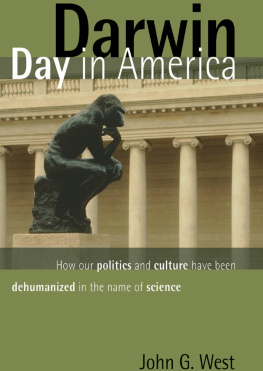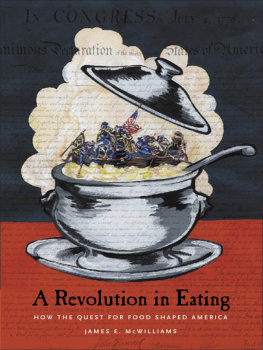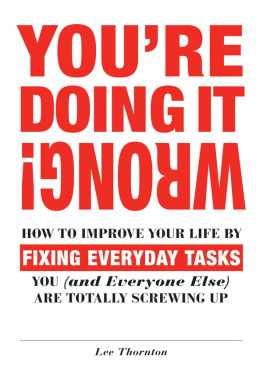Our country has soaked itself for a long time in the warm bath of self-congratulation. It started very early, as John Winthrop, the first governor of the Massachusetts Bay Colony, said in the year 1630: We shall be as a city upon a hillthe eyes of all people are upon us.
The arrogance of that statement was demonstrated almost immediately, because six years later the soldiers of the Bay Colony began burning the villages of the Pequot Indians. William Bradford, a contemporary, described the massacre of one villages inhabitants:
Those that escaped the fire, were slain with a sword; some hewed to pieces, some run through with spears, as they were quickly dispatched and very few escaped. It is conceived that thus were destroyed about 400 at this time. It was a fearful sight to see them frying in the fire and the streams of blood quenching the same but the victory seemed a sweet sacrifice and I gave prayers thereof to God, who had fought so wondrously for them and given them a speedy victory over so proud and insulting an enemy.
The idea that we make war with God on our side (in Bob Dylans haunting words) runs through our history. On the eve of the Mexican war of 1846, an American journalist declared that the annexation of Texas was the fulfillment of our manifest destiny to overspread the continent allotted by Providence for the free development of our yearly multiplying millions.
President William McKinley in 1898 told a group of visiting ministers that he had decided to take over the Philippines after he got down on his knees and prayed to God, and God told him it was the duty of the United States to civilize and Christianize the Filipino people. It is estimated that at least half a million Filipinos died as a result of our civilizing mission.
But reality has never brought any hesitation in the official rhetoric of self-praise. At the very time that the United States Army was carrying out massacres in the Philippines, Secretary of War Elihu Root was saying: The American soldier is different from all other soldiers of all other countries since the world began. He is the advance guard of liberty and justice, of law and order, and of peace and happiness.
It becomes easier to admire yourself if you change the facts of history. President George W. Bush, invited a century after the Philippines war to speak to the Philippine National Congress, told his audience: America is proud of its part in the great story of the Filipino people. Together our soldiers liberated the Philippines from colonial rule.
Woodrow Wilson is represented in most of our history books and our texts on international affairs as standing for idealism, but such a characterization must surely be reconsidered when one looks at Wilsons actual behavior: his bombardment of the Mexican city of Vera Cruz in 1914; his military occupation of Haiti in 1915, killing thousands of Haitians who resisted; his occupation of the Dominican Republic in 1916; the entrance of the United States into the slaughter fields of the war in Europe in World War I.
All of this was surrounded with the language of righteousness. Indeed, it was just a few months after the bullying attack on Mexico in 1914 that Wilson told graduating midshipmen at the Naval Academy that the United States used her navy and her armyas the instruments of civilization, not as the instruments of aggression. The idea of America, Wilson said, is to serve humanity, and every time you let the Stars and Stripes free to the wind you ought to realize that is in itself a message that you are on an errand which other navies have sometimes forgotten; not an errand of conquest, but an errand of service.
The victory in World War II gave a special boost to the idea that the United States had a special dispensation to press its power on the world. Now, said Henry Luce, the powerful owner of Time, Life, and Fortune, the United States had the right to exert upon the world the full impact of our influence, for such purposes as we see fit and by such means as we see fit. The twentieth century would be, Luce declared, The American Century.
Indeed, the United States, through the second half of the twentieth century, set out to fulfill this boast. Its corporations roamed the world. Its armed forces fought a ten-year war in Vietnam, and short wars in Panama, Grenada, and Iraq. It engaged in covert actions, to overthrow democratically elected governments in Iran, Guatemala, Chile. And it supported military dictatorships in Iran, the Philippines, Indonesia, and the Caribbean.
Though it failed in its attempt to overthrow the Cuban government of Fidel Castro, and was forced to withdraw from Vietnam, the United States continued to maintain hundreds of military bases throughout the world. Surrounding its aggressions with rhetoric about terrorism and democracy, it set out to establish more bases in the oil-rich Middle East.
In 1991, with the Soviet Union collapsing and no longer a rival military power, the elder Bush, in his State of the Union address in 1991, said there would be a new world order. He called upon his own version of history to say: For two centuries America has served the world as an inspiring example of freedom and democracy.
Democratic presidents have been just as extravagant in their praise for United States behavior in the world, and just as confident that it is the mission of the United States to export its virtues to other countries. Bill Clinton, speaking at the West Point commencement in the spring of 1993, said: The values you learned herewill be able to spread throughout the country and throughout the world.
This idea was reiterated by George W. Bush in his inaugural address in January 2005: spreading liberty around the world he said is the calling of our time. The New York Times said his speech was striking for its idealism. The day before Bush uttered those words, there was a photo in the Times showing a small Iraqi girl crouching, covered with blood, screaming. Her parents had just been killed when U.S. soldiers fired on their car when it failed to stop.
One might expect our political leaders to sing the praises of this country. Self-praise comes with the job. But the idea that the United States is an especially virtuous country has also been expressed by many American intellectuals. Even as they recognize that the United States is an imperial power, asserting its dominance over the rest of the world, they find this to be different than the imperialism of the British Empire, the French and Dutch and German empires.
The political commentator Charles Krauthammer has written: We are a unique benign imperialism. Michael Ignatieff, of Harvards Kennedy School, said: The twenty-first century is a new inventiona global hegemony whose grace notes are free markets, human rights, and democracy. These statements were made even as the United States was carrying on a war in Iraq that, after three years, and with no end in sight, had led to anywhere from 30,000 to 100,000 Iraqi deaths.
The city on a hill proclaimed by John Winthrop long ago indeed has had, as he said, the eyes of all people on us. But despite the obvious accomplishments of this countryits advances in technology and science, its impressive standard of living for much of its population, its relative freedom of expressionthose eyes have been less and less admiring.
The United States has been increasingly viewed by people all over the world as a rogue nationa government increasingly contemptuous of international agreements, insisting, as laid down in the National Security Strategy of September 2002, that it has the unilateral right to use force to eliminate any potential threat to U.S. dominance, and will, if necessary, act preemptively.








